- From Faith Current: “The Sacred Ordinary: St. Peter’s Church Hall” - May 1, 2023
- A brief (?) hiatus - April 22, 2023
- Something Happened - March 6, 2023
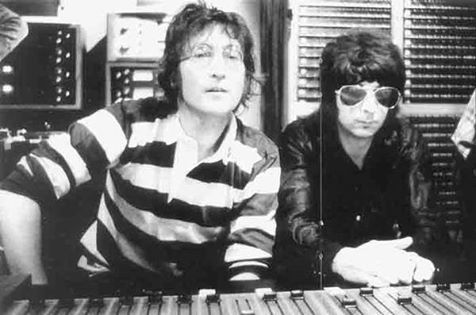 I want to say right at the start that I’ve never really gotten the cult of Phil Spector. With all apologies to our beloved @Hologram Sam, rock and roll before The Beatles leaves me cold—and trust me, I’ve tried. All that Ronettes stuff sounds like a pompous, immature version of something Motown did so much better.
I want to say right at the start that I’ve never really gotten the cult of Phil Spector. With all apologies to our beloved @Hologram Sam, rock and roll before The Beatles leaves me cold—and trust me, I’ve tried. All that Ronettes stuff sounds like a pompous, immature version of something Motown did so much better.
I‘ve also tried to like, or at least understand the appeal of, Phil Spector. I’ve read Tom Wolfe’s 1964 essay “The First Tycoon of Teen” (not available online but worth a read). I’ve pondered Spector’s close friendship with Lenny Bruce—as described by Albert Goldman, among others. I’ve wondered what made Lennon so devoted to Phil as The Magic Man, and Harrison so willing to put his incomparable batch of demos in this joker’s hands. All this and…I still don’t get it.
Even if it didn’t all sound like overproduced dreck—studio tricks and bad taste—I wouldn’t be able to look past the insanity. Showing Ronnie Spector the gold coffin he was going to display her in; the waving around of guns in the studio; and finally, the murder. Phil Spector had been signaling “I am going to murder someone” for thirty years, but because he had become rich and famous in a business used to coddling profitable eccentrics, Spector’s sociopathy was dismissed until someone died.
To me? On his best day, Phil Spector was a mini-Brian Wilson with a gun fetish; on his worst, he was a killer from the neighborhood who happened to be in the right place at the right time. And I’m not even talking about “The Long and Winding Road.”
Convince me otherwise in the comments?


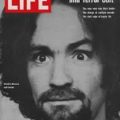
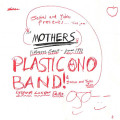
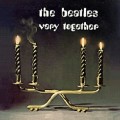
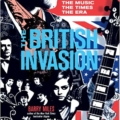


No apologies necessary! Because I agree.
I’ve thought about my preoccupation with pre-Beatles rock, and I’ve come to realize that the only 1950s rock ‘n roll I ever really liked… didn’t sound like 1950s rock ‘n roll. It was the stuff that pointed to the future British Invasion that stuck to me. Buddy Holly’s “Words Of Love” and “Well Alright” for example. Or some of the harmonies of the Everly brothers. Some of Eddie Cochran’s records. But when Eddie croons like Elvis, I tune out. And I never cared for the Doo-wop sound, or some of the melodically uninspired Rockabilly.
I was five years old in 1964, and my teenaged siblings collected records. The first music that I liked was the Beatles. To my family’s amusement, I’d jump around and sing along with Meet The Beatles. I think I imprinted on that sound like a baby duck imprinting on a sheepdog.
My siblings didn’t collect 1950s rock. So it wasn’t until over ten years later that I stumbled upon ’50s rock ‘n roll. Most of it sounded moldy and dated to me. I only liked the artists that transcended their time and genre.
In 1964-65, I remember hearing a few Phil Spector productions in our house. The Righteous Brothers and a few others. And here’s the weird thing: I remember feeling profoundly uneasy every time they played. The sound inspired a cold dread in me. This might sound strange, but looking back now I believe that as a child I could perceive evil in the work. It was the opposite of the joy I got from the Beatles.
A few years later, when I was a teenaged record buyer, I remember the same feeling of unease when I heard Instant Karma and All Things Must Pass. At the time I just thought it was a matter of taste, that I preferred less reverb or whatever.
Back in 2015, my wife and I fulfilled a long-held ambition and traveled to Italy. Toured Venice, Florence, & Rome. A wonderful time. Except when we visited the Colosseum. I didn’t quite have a panic attack there, but almost. Instead, that familiar old feeling of dread.
So anyway, that’s always been my reaction to the Wall of Sound! Visceral!
Woody Allen felt that with Wagner. He said when he listened to his music he had the sudden urge to invade Poland.
Brilliant!
Before I learned more about Beatles-world, every time I heard George Harrison’s “What is Love” I remember thinking, wow, this song would be improved by 200% if you removed about 20% of the backing tracks/instruments/sound effects. When I learned recently that Phil Spector had produced that album it all clicked. Too much going on.
.
Plus, Spector was a murderous dickwad. One thing that cracked me up on an AKOM podcast is when they made fun of Spector in the Imagine movie, when he’s all “haw haw, who’d want to do a Paul album?” One of the AKOM hosts shouts, “you did, bitch!” True dat.
Has AKOM run its course? They haven’t done anything in a while. Looking for new jean jacket material, I’m guessing.
Here’s an interesting and appalling overview of Spector’s life and career and crimes:
https://www.vulture.com/article/phil-spector-music-producer-murderer-obituary.html#_ga=2.124693642.1462890152.1611141380-1279915749.1611141380
Hi Michael – I think it’s quite possible that John and George became so keen on Phil all of a sudden in early 1970 because he was known for producing music that sounded nothing like what George Martin and team had made with the Beatles, i.e. another “f*** you Paul” gesture. After all Paul had always been the most interested of all the group in what GM/the engineers did (if people like Geoff Emerick are to be believed), and what they did was essentially “not in bad taste at all”.
Having (sort of) put one over on Paul with Phil’s re-arrangements on Let It Be, they may have proceeded to have their own records recorded by the same guy to make it clear that they had no interest in going back to Beatleland (in 1970-72 at least) – “f*** you even more Paul”!
Which is kind of sad. But then, John is said to alternately have been on heroin and Brandy Alexanders throughout the first half of the 1970s and George was in thrall to a fairly unworldly religious cult, so I can’t claim to even begin to empathise with their behaviour at that time. Cheers!
This seems right to me. Also the “going back to our roots” fetish — as if Spector-era rock and roll hadn’t been a fucking wasteland. That’s why The Fabs were so big.
For my money, Jim Steinman did the same stuff Phil Spector was doing in the Seventies and Eighties, but better, and with much less ponderous self-seriousness. (Which does not make him any more of a quality human being — I speak from experience — but at least you didn’t get a feeling of dread like @Hologram Sam seems to have from Phil’s stuff… just unbridled hedonism. And, well, in that case the shoe really fits.)
He was Brian Wilson’s favorite producer.
A lot of people who were teenagers in the 1950s loved Phil Spector. And he was important for a short period of time, in that limited way. But when was the last time you heard a Spector-produced song not affiliated with The Beatles? “You’ve Lost That Lovin’ Feeling” is a great-sounding record, but so is (randomly) “Wall of Confusion.” Is Norman Whitfield ALSO a genius?
To me, he’s Richard Perry with a gun fetish. A creature of early 60s youth culture hype. “Hey old people! Something’s happening! It’s a YOUTHQUAKE, and you can read about it in the pages of The New York Herald Tribune Sunday Magazine, when Tom Wolfe introduces you to the weirdest, wildest cat in the millionaire-making world of pop records!”
Brian Wilson used many of the same musical effects that Phil Spector used, only better and with a lot more positivity, IMO. There’s a dark desperation in a lot of Spector’s work (even “Be My Baby, for example) that I really don’t care for. It’s hard to describe, but I think he often chose to record songs that had an “unhinged” element, emotionally, and that he used production to amp that effect way up.
Essentially, Spector was an extremely effective craftsman and a damaged, destructive human being.
I’m not ready to agree that *all* early rock was substandard, though. Without Chuck Berry and Buddy Holly, for example, it’s hard to see the Beatles or many other “classic” rock bands taking the shape that they did. Add in Little Richard, too.
https://www.nme.com/en_au/news/film/buddy-holly-biopic-ruairi-oconnor-clear-lake-2954587
Paul got some stick for LIB Naked but damn am I glad there’s a version of the album untouched by a murderous psychopath. I mean could there be anything less Beatley? Plus I like a lot of the songs better stripped down.
I bought Let It Be Naked when it first came out and it’s one of my favorite Beatle things. I never understood the antipathy it aroused. The fans who call it “dry” or “soulless” … I suspect it’s just them resenting Paul attempt at what they consider a rewrite of history. I don’t consider it a rewrite, I consider it a restoration. Sort of like wiping centuries of grime off the Sistine Chapel ceiling. I love the Spectorless mix and I wish the same thing could be done with All Things Must Pass.
It was always a mystery to me why Plastic Ono Band didn’t sound like overproduced garbage. “Phil’s name is right there, so why is the production so tasteful?” I remember thinking when I first held the album cover in my hands.
It wasn’t until recently I learned Spector was absent for most of the sessions. That explains it. He did something similar to the Ramones years later. He slipped out of the recording studio and left them standing there with their guitars in the dark.
There’s a long tradition of mediocre men not bothering to show up for their jobs, and being called Geniuses anyway. The music industry is no different.
Speaking of mediocre guys, Allen Klein was the one who brought Spector to the Beatles.
Echoing your bemusement at the “REVISIONISM!!!” accusations. For people who like the Spector version, it’s literally still right there for them. Naked is an alternate version, that’s all.
.
If things were the other way around, and 60yo John had spearheaded an alternate Pepper version (that addressed whatever bee he still had in his bonnet about the production) I would be FASCINATED to hear the result, not angry!
.
“there’s a long tradition of mediocre men not bothering to show up for their jobs, and beig called Geniuses anyway”
.
Oh, snap! Preach, Sam!!! 🙂
Ugh, I loathe the man, but I’ll put in one semi-good word for Spector’s production. The Beatles had no idea what to do with Across the Universe, and not even George Martin seemed to be able to rescue it. While I disagree with the choir, slowing that track down, adding strings, and tastefully (a word almost never associated with Spector) mixing up the wah-wah guitar and piano for just the right amounts of time help the “Nothing’s going to change my world” refrain sound meaningful and assured rather than like the convictionless musings of someone befuddled by LSD. Your mileage may vary.
I also think George liked working with someone who had Spector’s level of fame, but was actually encouraging to him, after years of working with Martin and Lennon/McCartney. Spector’s letter to George about the ATMP demoes is very kind: http://www.rarebeatles.com/ghpsatmp.htm. I can’t think who else George might’ve worked with at that time, but I sure wish he’d found someone else who was supportive, but more musically tasteful.
Anyway, Tasmin, I agree with you about the vibe on Spector recordings: it’s almost always eerie, uncomfortable, and not warm. I don’t know enough about how Spector and Brian Wilson did things differently, but whereas Brian’s walls of sound generally feel warm (until SMiLE), Spector’s always sound messy, dark.
Not heroin befuddlement? I also prefer Spector’s version of Long and Winding Road, perhaps because I don’t care for that lugubrious song in the first place.
@Michelle, not sure I understand your comment, but Across the Universe was written sometime between December 1967 and February 1968, so it would have been when John was in the throes of LSD addiction.
Yeah, I know. But I thought it was John’s delivery you were talking about, not the lyric itself, if the production of the track improved it and gave it conviction that somehow was missing on the page.
Across the Universe doesn’t sounds like an acid track to me any more than Eleanor Rigby sounds like it was written under the influence of pot.
After acid, Brian Wilson writes music like a man alien to himself.
@Michael Gerber – the SMiLE sessions are the aural equivalent of late-period Van Gogh paintings.
I wonder if that man is Carl Spackler, whom he sounds like when he talks.
I actually like the Wall of Sound stuff he did for Ronnie and Darlene. mostly the Christmas records.
John kept him on a short leash for Plastic Ono, which I adore. Love that minimal sound.
I was hearing the stories about him pulling a gun on Joey Ramone and John back in the day. Read Ronnie’s bio and was relieved that she had got away from Phil. Scary reading. John said he was crazy and I believed the stories. Why would anyone work with him, I thought. Producers are extraneous in my opinion. Bands can do their own stuff. Just hire an engineer to help out. Certainly the Beatles learned how to do whatever years before they split.
Anyway I was not surprised at all when I heard that he had killed someone. I was only afraid he’d get off and kill someone else.
Heard Phil died of COVID. Not surprised about that either. I get my COVID vaccine shot next week.Hope all here are being safe and don’t end up like Phil.
@Auj, I’m glad you’re getting the shot(s)! Given my age and state, I’ll be lucky to be vaccinated before April or so…so I’m staying at home. 🙂
I think too many people get caught up in the fact that Phil probably did have antisocial personality disorder (guessing NPD rather than sociopathy) and that clouds their perceptions of the man and his work. I’ll grant you some of the comments on bad taste, but in many respects that was the era (not unlike our own, I think the last decade of music will be pounded critically 50 years from now). Spector operated within a certain time and place, and he must be judged based on that. The hit he did with the Teddy Bears, “To Know Him is to Love Him,” very much a goofy product of its time, is still sonically more interesting than most of what was being produced at the time, e.g., Annette’s solo in the middle of the song–it’s sublime. “You’ve Lost That Lovin’ Feelin'” may be one of the best-produced songs of all time. Maybe THE best. Spector knew enough to leave Lennon alone in “Imagine,” and frankly, I think the steady drumbeat of hatred for what Phil did with “Let it Be” is nothing more than a bunch of pseudo-intellectual snobbery by those who don’t really understand music–but desperately want people to think they do–so like bleating sheep they go along with the crowd. Talk about bad taste, there’s the epitome of it. By Lennon’s account (who I believe over McCartney, who always took himself a bit too seriously considering George Martin was probably the greater talent in the relationship–but for Martin, McCartney would’ve basically been known as a clever little songwriter rather than an all-time genius), Spector took a big bag of steaming feces and turned it into a legitimate album. Again, for the time the extra strings and things were appropriate and creative. I think “The Long and Winding Road” sounds tinny and rinky dink stripped down–there, I said it. I get it, it’s trendy to hate on Spector, and if there’s one thing one can be certain of, it’s that academics (I am one), art snobs and music snobs can be counted on to follow the leader because they’re so desperately insecure and want to be one of the cool kids. Rubbish.
“I think the steady drumbeat of hatred for what Phil did with “Let it Be” is nothing more than a bunch of pseudo-intellectual snobbery by those who don’t really understand music–but desperately want people to think they do–so like bleating sheep they go along with the crowd.”
Tastes are going to vary, and it’s simplistic to call everyone who dislikes Spector’s production of Let It Be a “bleating sheep.” I also think it’s risible to say that “but for Martin, McCartney would’ve basically been known as a clever little songwriter rather than an all-time genius.” Martin brought out the best in the Beatles, but the best was already there. Martin’s work for other bands shows that he wasn’t a magician.
I’d add that the “extra strings and things” that Spector added to the “Long and Winding Road” were hardly groundbreaking. They’re right in line with a lot of “light” orchestral arrangements of the time.
@Michael Wiggins – ultimately, whether or not we like the production of Let It Be is mostly subjective, and it’s not really about how much anyone knows about music. I don’t like the album’s production much, but I’m open to being convinced otherwise (or at least to listen again with fresh ears) by a good enough argument. I haven’t heard that argument yet. It’s certainly not one that involves the words ‘bleating sheep’.
I think it’s always a good idea to have constructive discussions around the separation of art and artist, or trying to explore all facets of someone like Spector’s persona and his contributions to the Beatles. But even if he hadn’t turned out to be a murderer (which I do think means a blanket ‘no’ to him and his production style is an OK stance to take) I’m not sure I agree with accusing everyone who doesn’t like Let It Be – or Spector – of pseudo-intellectual snobbery, musical ignorance and of having no opinions of their own.
@Michael Wiggins,
“I think the steady drumbeat of hatred for what Phil did with “Let it Be” is nothing more than a bunch of pseudo-intellectual snobbery by those who don’t really understand music–but desperately want people to think they do–so like bleating sheep they go along with the crowd.”
This is probably my single favorite sentence ever written on this blog. It’s Howard Beale in Network-type great.
I don’t like Phil Spector’s production. I think it’s overbearing and gimmicky and leans into the worst kitschy bombastic elements of pre-Rock Pop, rather than emphasizing what made rock ‘n’ roll truly different and exciting. I think Spector should be viewed as a bridge-figure; he came along in a very fallow period for rock ‘n’ roll, between the genius of Elvis and the genius of the Beatles–and that right there says something: the moment The Beatles hit, Spector was old news. That doesn’t happen to geniuses. I think Spector was celebrated by people like Tom Wolfe who were desperately trying to fit rock ‘n’ roll into the larger story of American popular music as they saw it, and Spector-as-Svengali, Spector-as-Teenage-Tycoon was an appealing paradigm for that. But to me, Spector’s sound is too limited, and too tied to a certain era (and a minor one at that) to be truly genius.
As far as “best-produced song of all time,” I’d go with “Good Vibrations,” but heck, that’s an unanswerable question. I think if you weren’t filling jukeboxes in 1966, supplying your own emotional content, “You’ve Lost That Lovin’ Feelin'” is a great big gorgeous slab of schmaltz…which is Spector’s stock-in-trade. I prefer the production on early Motown, Wilson at his best, Martin…and that’s just of that era.
@Michael, a ‘steady drumbeat of hatred’ seems excessive – I’ve met many Beatles fans who prefer the Spector LIB to the Naked version.
For my money, Spector’s early ’60s girl group production is deserving of its acclaim as a revolutionary style. I do enjoy a lot of those records, though their take on the teenage experience – adding a hysterical edge to vulnerable young female voices by drowning them in the centre of a reverberating hurricane – is a rather dark and troubling one.
IMHO though, by the time Phil’s association with the (ex-)Beatles was in full swing, ego, drugs and neuroses had clouded a lot of his artistry. His choices with the Get Back material are not judicious attempts to creatively elevate the material on its own strengths; they sound to me like the work of someone with an agenda, or something to prove. Leaving the folkier cuts like Two Of Us or For You Blue in their stripped-down, semi-live state, while randomly adding signature Spector production elements to others, does not a cohesive album make. John and George have both said that he was only half-present and more of a ‘consultant’ than an actual producer for POB and ATMP, and even John had to back off a few years later when the craziness got too much. I think Phil was salivating at the chance to have his name on Beatle product, and because J/G needed a producer that would make them feel big and confident, it was an easy match.
@Ben S., I think you’re right on, here. Spector’s being brought in to LIB has always felt like more a part of John’s love/hate towards The Beatles, rather than a coherent musical decision. Lennon was, in some sense, trying to “undo” The Beatles, to return to the Spector era, which he loved because it was his youth. Now that we’ve heard all (or most of) the tapes, I don’t think “[Spector] was given the shittiest load of badly-recorded shit with a lousy feeling to it ever, and he made something of it.” Love the Spectorized versions or hate ’em, I don’t think they’re better than LIB Naked.
I agree with Sturgeon’s Law (ninety percent of everything is crap) but I don’t understand how one can love the Beatles “This Boy” and not love Ritchie Valens “We Belong Together”
And the Everly brothers’ output from 1959 to 1963… they’d evolved beyond simple A-D-E patterns and were using all sorts of interesting and unexpected chord changes and minor scales
I think Spector’s wall of sound was his answer to the Sam Phillips slapback echo delay production style of Elvis’s early Sun Recordings. The studio mixing board as another instrument, rather than a neutral collector of whatever the musicians were putting down. Phil’s attitude in the early ’60s seemed to be “Whatever they did in the 1950s, we’ll do even crazier.”
I’ve always heard Buddy Holly’s Clovis Studio recordings as the opposite of this. Echo was used, but sparingly and for extra dynamics. The Clovis sound made you feel like you were in the room, rather than across the street. Holly’s stratocaster would be recorded directly, but then a second mic would be placed close to his guitar itself, to capture the sound of his pick clicking against the strings.
There was also a different vibe from those sessions:
The opposite of the vibe I got from Spector’s wall.
Here’s something I didn’t know:
https://www.theguardian.com/music/2021/jul/02/rock-sideman-earl-slick-bowie-had-gone-levels-into-insanity
It’s a difficult topic. On a principle note I prefer to separate the artist persona (including his/her art) from the private person behind it. After all, the greatest artists are not always the nicest persons. On the other hand, the real life man’s crimes are truly awful. But then, we’re still playing the music of Carlo Gesualdo (1566-1613) who murdered his wife, but was a genius composer. I can not recall having ever seen protests about the performance of Gesualdo’s music – whereas I know there are people who won’t listen to Spector-productions because of his misdeeds, and I fully understand why.
In any case I feel more comfortable talking about music rather than the musicians’ private lives, and I genuinely admire the grandiosity of f.e. “Be My Baby” and “River Deep Mountain High”. It’s something about the atmospheric soundscape that fascinates me. Only it was a terrible decision to have him remix the Let It Be master tapes. It’s an aesthetics that works for some types of music, but not for others…